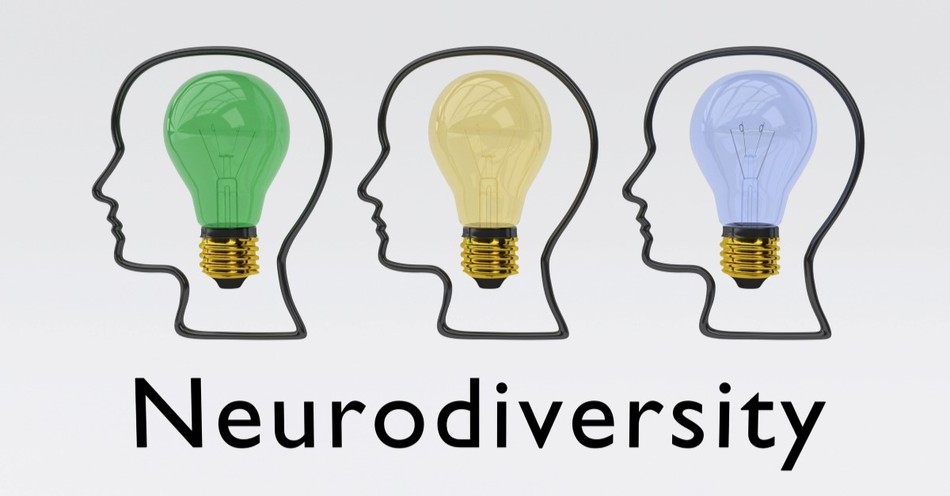Neurodivergency can make the church uncomfortable as a whole. People often see those with a neurotype as a burden or someone who isn’t putting enough effort into appearing like a neurotypical (someone who doesn’t have a neurodivergency).
This sadly limits how we can, as a church, evangelize to those with different brain chemistry than ours. If the apostle Paul tells us that we’re one body with many parts, why exclude those with disabilities? In fact, neurodivergent Christians can minister in unique ways. In today’s article, we’ll break down the neurotypes, how certain neurotypes can minister uniquely, and why we should make room for different abilities in the church.
Let’s dive in.
What Is a Neurodivergent Christian?
The Cleveland Clinic defines neurodivergent as “people whose brain differences affect how their brain works. That means they have different strengths and challenges from people whose brains don’t have those differences. The possible differences include medical disorders, learning disabilities, and other conditions.”
Combine this with Christianity, and it can look different in various ways. An example could be a Christian with Attention Deficit/Hyperactivity Disorder (ADHD) who cannot sit still or keep their mind focused during silent prayer, a sermon, or meditation practices. Some may look at them and see immaturity, misbehavior, intentional disruptiveness, or attention-seeking. Let’s look at another example. Another example can be Autism Spectrum Disorder (ASD). Christians with autism may appear unapproachable, distant, shy, or less communicative. In a church where people thrive on communication, connection, nonverbal cues, and even physical tough (i.e., hugs and handshakes), these may be difficult for Christians with autism.
How Can People with Autism Minister Uniquely?
We (Hope and Trey) can uniquely speak to our neurotypes: ADHD and autism. We won’t say who has what, but let’s just say we have experienced a lot of hurt from how the church has treated us based on how our brains are wired.
Before diving into how autism can minister uniquely, we probably should establish some key features of autism. Those with autism tend to
- Have a strong sense of justice
- Have a heart for those who are downtrodden
- Have special interests in which they can talk for hours
- Have a strong sense of integrity and honesty
- Have strong passions and emotions
With that said, let’s consider how these traits can play a beautiful role in evangelism.
Strong sense of justice: If there is an injustice in the world, someone with autism will feel this to their core. It will light a fire in their belly. And they will want to do something about it. Any social justice para ministry could use someone with autism on their team.
A heart for the downtrodden: Sadly, the church tends to overlook those who get hurt. They may think that hurting people are the exception to rules and that it’s not a big deal to care for them. Those with autism feel differently. They tend to bind up the wounds of those who have been hurt, especially by the church. They tend to be damage control for those affected by the wolves in sheep’s clothing within the church’s walls.
Special interests: Want someone who knows all about theology or apologetics? If someone who has autism has a special interest in this area, they will throw themselves into research. They will become overnight experts. If they have a heart for service and ministry, they will always help or be on-call. They are people who throw their whole hearts into everything.
Strong sense of integrity and honesty: We need accountability in the church. And we need honest people to call us out when we are not the hands and feet of Jesus. The apostle Paul did this often in his letters to the church. Those with autism often take their tasks very seriously. They want to do good work and won’t half-heartedly do or say anything.
Strong passions and emotions: Autistic people feel differently. They feel emotions to a greater degree than neurotypicals often do. In churches where apathy runs rampant and people have become complicit with how things are, churches can use someone with autism to bring life back into a ministry or to a group of people.
There are many other ways people with autism can ministry uniquely. I’ll hand this off to my coauthor on another common neurotype, ADHD.
How Can People with ADHD Minister Uniquely?
Now let’s focus on ADHD. Those with ADHD can also have key features that people should know. These include but are not limited to the following:
- Hyperfocus on tasks
- Hypersensitivity emotions
- Communicative skills
- Impulsiveness and courage
Let’s also break down how these play into Christian evangelism and the Christian spiritual life.
Hyperfocus on tasks: As previously stated, people with ADHD can become easily distracted or overstimulated. That said, when they apply themselves to something of great interest, they can get lost in it for hours. As someone who likes writing and drawing, I can get lost in what I do without looking at the clock or the latest text message. This can be beneficial in evangelism when a ministry needs extra hands. If the Christian with ADHD enjoys their task, they may perform very well and do everything they can to perform it well.
Hypersensitivity and emotions: When it comes to being hurt or others being hurt, ADHD people can become sensitive to another’s pain, grief, depression, and so on. This can sometimes be due to RSD (Rejection Sensitive Dysphoria). In many ways, they want to take on the world for themselves. In ministry, this can play a helpful hand when working in a community setting–youth ministry, recovery ministry, evangelism outreach, and one-on-one spiritual direction.
Communication Skills: Combined with hyperfocus, ADHD people’s communication skills can be significantly high—from uniting people for a cause, to leadership development, and more. These people can be great at building relationships in various ministry circles, especially if they reach out to those like them–the vulnerable and the outcast.
Impulsiveness and Courage: While impulsiveness has to be controlled to a degree, it can also serve a purpose. When ADHD people are told that someone needs to step up to help in areas of need, they can be the first to go for it almost without a second thought. In a healthy context, they may recognize their gifts and talents meet the demands, and rise to the occasion. This has happened to me—I’ve found ministry roles, from serving at church services to taking up new job positions in the church, where my skills provided just what people needed.
Why Are Neurodivergent Groups Often Overlooked in the Church?
Or, sometimes, ostracized.
This is the more difficult topic to address in this article because I believe that as Christians, we probably would like to think we love one another equally. But many people with disabilities would beg to differ.
Although I can’t conclusively list all the reasons I’ve seen those with neurotypes get shunned or excluded by the church, here are a few reasons why this may happen.
The Job’s Friends’ Issue. In the book of Job, after his terrible suffering, his friends came. Job’s friends sat with him for a little while. Then they tried to find out what was wrong with him. Sadly, because we live in a fallen world, people have disabilities. Unfortunately, people think disabled people deserve their disabilities—that they did something wrong, and therefore, God was punishing them. Something that has been disproven time and time again in Jesus’ ministry.
The Power-Through Issue. People like those with neurotypes until certain traits that aren’t exactly normal are brought out. If someone with autism has a meltdown (shutting down due to over-sensory issues) or if someone with ADHD takes a loss hard due to their RSD side effects, then people want the disability to go away. For the person to power through their brain chemistry and appear normal. People don’t like what they don’t understand. If someone has never experienced what it’s like to be neurodivergent, they will get uncomfortable around someone with different brain chemistry. And they may try to force them to assimilate.
The Not-Understanding Issue. My boyfriend and I have different neurotypes. And just because we’re neurodivergent doesn’t mean we operate similarly. Quite the opposite, many times. But we’ve taken the time to get to know one another. We understand each other’s quirks and accommodate them. The problem is that people in the church often do not want to try to understand. Because it’s, well, effort. People will claim busyness or any number of reasons not to understand why someone’s brain may operate differently than their own.
Unfortunately, if we want to be the hands and feet of Jesus, we must understand people. We have to get to know them. Understanding someone builds trust. And when someone trusts you, they are more willing to hear about Jesus.
Recommended Links:
The Benefits of Ministry to the Disabled
11 Ways to Love People with Disabilities
How Did Jesus Treat People with Disabilities in the Bible?
7 Things People with Disabilities Want Us to Know
5 Things You Need to Know to Overcome Disabilities
Does the Bible Talk about Disabilities?
Photo Credit: Getty Images/hafakot
Hope Bolinger is an acquisitions editor at End Game Press, book editor for hire, and the author of almost 30 books. More than 1500 of her works have been featured in various publications. Check out her books at hopebolinger.com for clean books in most genres, great for adults and kids. Check out her editing profile at Reedsy.com to find out about hiring her for your next book project.





.jpg)